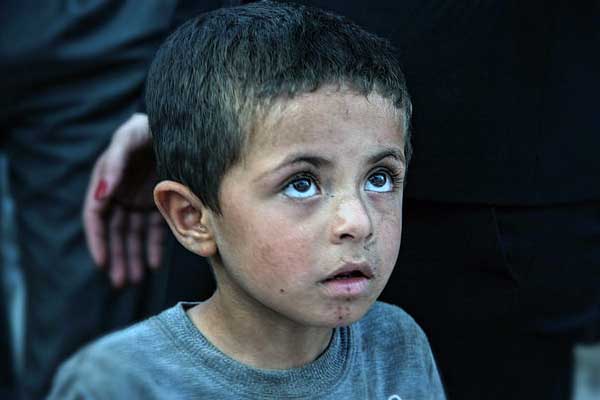
Global paralysis on refugee crisis has contributed to deaths of thousands, U of T student tells United Nations
Published: September 10, 2015
Over the years, the General Assembly Hall of the United Nations in New York City has echoed with the speeches of many notable individuals – John F. Kennedy, Che Guevara, Pierre Trudeau, Margaret Thatcher and Indira Gandhi among others.
This week, University of Toronto history PhD student Tina Park joined their ranks as she participated in a debate in the Assembly Hall about Responsibility to Protect, otherwise known as R2P.
Park attended the debate on September 8, along with U of T colleagues, Misha Boutilier (a first-year JD student in the Faculty of Law) and Elliot Gunn (a fourth-year international relations student), on behalf of the Canadian Centre for Responsibility to Protect, which is based at U of T.
U of T News spoke to Park about R2P, its bearing on the current Syrian refugee crisis and how she felt about speaking at the United Nations.
What is R2P?
The Responsibility to Protect was coined in 2001 and adopted by 150 states at the 2005 World Summit. It maintains that when sovereign states are unable or unwilling to fulfill their responsibility to protect their own populations from genocide, ethnic cleansing, war crimes and crimes against humanity, the international community has the responsibility to do so.
What led to your appearance at the United Nations General Assembly?
I have contributed to UN Secretary-General Ban Ki-Moon's annual reports on the Responsibility to Protect since 2012 and I started attending the annual UN General Assembly's interactive dialogue on R2P in 2013.
Also, the UN Secretary General's Special Advisor on R2P, Jennifer Welsh, is a Canadian. She used to teach at U of T and has shown a tremendous support for our Canadian Centre for R2P.
The Canadian Centre for R2P is housed at U of T's Munk School of Global Affairs. How did that come about?
I first learned about R2P in the Trinity One program back in 2005, and then did an in-depth study in a fourth-year seminar at Trinity taught by Erin Mooney (a senior consultant at the UNHCR). I co-founded the CCR2P back in 2010 with Victor MacDiarmid, when we were both starting our graduate programs at U of T. Professor Janice Stein was the director of the Munk School; she gave us an institutional base at the Munk School and we began recruiting for analysts soon after.
Since then, we have expanded our research and advocacy efforts every year and currently have more than 150 analysts at U of T, regional chapters across Canada, and more than 100 senior fellows and junior fellows across the globe in our R2P Scholars Network.
How did you feel about speaking to the United Nations General Assembly?
It was an extremely humbling experience to address the UN General Assembly, a privilege which I took on with a great sense of responsibility. Our moderator provided a very strict time limit to all member states, so I did my best to be concise!

(Above, people rest on their way through Hungary; photo by Stephen Ryan International Federation of Red Cross and Red Crescent via Flickr)
In your speech, you said that the “global paralysis on Syria has contributed to the death of thousands and displacement of millions. The speed, magnitude and brutality of the Syrian crisis call for our compassion and our collective responsibility.” Could you expand on that?
When a state fails to protect its own people from mass atrocities (genocide, ethnic cleansing, war crimes and crimes against humanity), the international community has the responsibility to do so. With more than 200,000 civilians killed and millions of refugees and internally displaced in the past four years, we are seeing that the Syrian government is unable to protect its own people.
The use of force is not the only way in which R2P can be exercised and a country like Canada, with our track record of success in promoting global humanitarianism, has a special responsibility.
The story of Aylan Kurdi, the three-year-old boy whose body appeared on the shores of Turkey, is a telling example of what happens when we fail to live up to our responsibility. At its core, R2P is about promoting human dignity, so that no one shall fear for their life and freedom. As we approach the 70th anniversary of the signing of the UN Charter this fall, we must remember that saving human lives, however daunting and challenging it may seem, is something that we must continue to aspire to.
For the full text of Tina Park’s remarks, go to http://ccr2p.org/ccr2p-at-un/.
For more information about the Canadian Centre for the Responsibility to Protect, visit http://ccr2p.org/.
Below, from left: Misha Boutilier, Tina Park, Adama Dieng (UN Secretary-General's Special Advisor on the Prevention of Genocide) and Elliot Gunn




